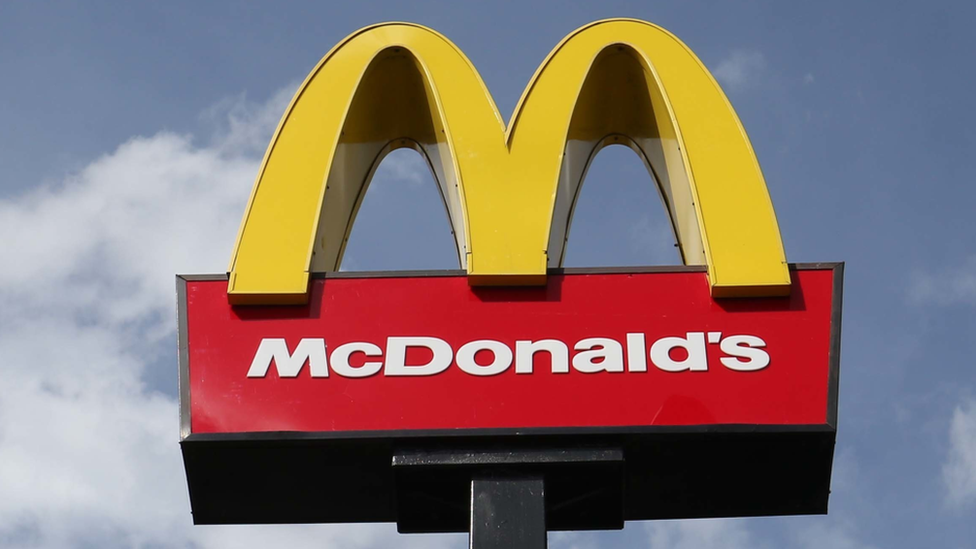Pair forced men to work at McDonald's, trial told
- Published

A man and a woman deny forcing six men to work at McDonald's and taking their wages
A man and a woman took advantage of six vulnerable men, forcing them to work at McDonald's and taking their wages, a trial has been told.
Ernest Drevenak and Veronica Bubencikova are accused of controlling their employment and income at a fast food branch in Cambridgeshire.
The prosecution said all the complainants were Czech nationals.
Mr Drevenak and Ms Bubencikova deny all modern slavery charges against them.
The pair are accused of six counts of holding a person in slavery or servitude, five of arranging or facilitating travel of another person with a view to exploitation and three counts of fraud.
Cambridge Crown Court heard police had found five of the alleged victims after arriving at the branch of McDonald's in 2019 and began a modern day slavery investigation.
Opening for the prosecution, Simon Wilshire said each of them had been "lured to working in the UK under the pretence of a better life".
They were all vulnerable to exploitation and were either homeless, unemployed, in low-paid jobs, or had drink or drug problems in their native country, he told the jury.
"They were a clear target," he said. "Each was approached in their home-town by friends, family and associates of Ernest Drevenak".
They "each spoke little or no English", he added.
Mr Wilshire claimed employment was arranged at McDonald's by Ms Bubencikova who helped them to fill out forms and did online employment tests for them.
"Each claimant was forced to work excess hours under the pretence of earning more money," he said, but instead "they never saw any wages" and had no control of their bank accounts.
"They had no idea how much they earned," he said.
The court heard about one individual who was working in the Czech Republic in a low paid job and had large debts.
He was offered the opportunity to work in the UK and he arrived in 2015, moving into Mr Drevenak's house.
He was told he would work nine hours a day, five days a week, but the reality was he worked between 45 - 100 hours a week, on one occasion 30 hours straight, the jury was told.
His payslips were sent to Mr Drevenak with wages paid into his bank account and he was only given £40 every fortnight, the prosecution said.
The jury was told that in 2016, he was moved to a caravan in Cambridge with no hot water and electricity that was switched off daily.
The prosecution then told the court about another man who arrived in the UK in 2015.
Mr Wilshire said he had been homeless in the Czech Republic when he was approached by a woman suggesting he move to the UK for food and money.
His wages were also paid into an account opened in his name by Mr Drevenak and he "had no knowledge of his salary", he said.
Mr Wilshire told the jury that the man had been assaulted twice by Mr Drevenak in front of others, once so hard "he was knocked off his feet".
The trial continues.

Follow East of England news on Facebook, external, Instagram, external and Twitter, external. Got a story? Email eastofenglandnews@bbc.co.uk or WhatsApp us on 0800 169 1830